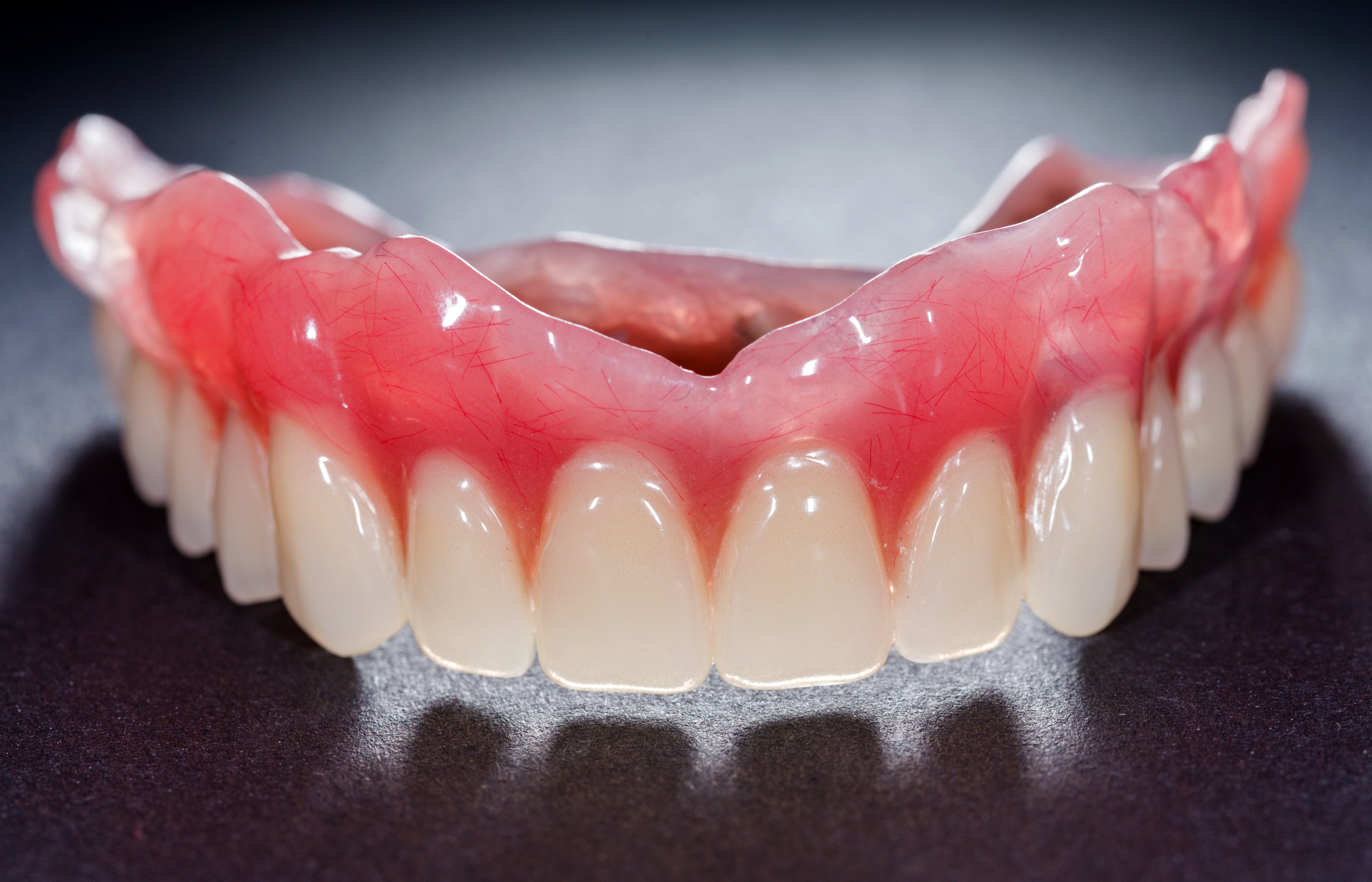Dentures replace all the teeth on the upper and/or lower arch. People who are missing most or all of their teeth greatly benefit from dentures. Quality of life improves, as do self-confidence and oral and overall health.
Today, we’re going to answer some of the most common questions we hear about dentures at Metro Dental Care in Denver. If you have additional questions or want to schedule a consultation with one of our dentists, call us at 303.534.2626.
What are the benefits of wearing dentures?
- Smile with confidence
- Chew foods without slippage
- No wobbling, shifting, or loosening
- Support cheeks, lips for youthful look
- Implant dentures deter jawbone osteoporosis
Why do people need dentures?
Untreated gum disease causes 70% of adult tooth loss, and in 2020, almost 41 million Americans wore dentures, which is about 12% of the total population. Tooth decay (cavities) and old, failing dental work also create the need for dentures. Less commonly, significant facial injury can knock out a number of teeth, so dentures are indicated in some cases.

At what age do most people get dentures?
Most patients get their first set of dentures in their 40s. According to research on orawave.com, denture wearers by age are as follows:
- 3% ages 18-34
- 16% ages 35-44
- 29% ages 45-55
- 51% ages 55-64
- 57% ages 65-74
Are there different types of dentures?
Yes! Dr. Glud offers both traditional and implant-retained dentures, also called overdentures. Remember that at first, prosthetics may feel clumsy and odd, but with time, they’ll feel like a natural part of you.
Traditional dentures are held in place on the upper arch with natural suction or adhesive. Lower-arch dentures require adhesive. Traditional dentures rest on the gums, and as bony ridges on the gums wear smooth due to friction, dentures need relining every few years. Relining helps ensure a good fit. Quality dentures should endure for about 7-10 years before needing replacement.
Some patients complain of slippage. When eating a meal or speaking, dentures may slip out of place. This can cause embarrassment and make a person self-conscious. Another complaint is that food gets stuck between the gums and prosthetic, irritating gum tissue.
Implant-retained dentures are secured to the jawbone by small, screwlike implant posts. The procedure can take up to a year to complete, and some patients require bone grafting prior to getting implants. However, once a patient has an implant-retained denture, he’s likely to love it! Implant dentures won’t slip, loosen, or wobble. They look and feel natural, and the posts can last a lifetime.
How do I take care of my dentures?
After every meal, remove your dentures and run them beneath clean water to remove food particles. (To reduce the potential for breakage, place a towel over the sink and countertop before handling them.)
Next, clean your mouth with a soft-bristled toothbrush, taking care to also brush your tongue, the roof of your mouth, your interior cheeks, and all other soft tissues within the mouth. Remove any leftover adhesive, then rinse thoroughly.
Use a nonabrasive denture cleanser to brush your dentures while they’re out of your mouth. Remove food debris, plaque, and hard plaque (called tartar or calculus). Also clean the underside, where they sit on your gums. Be sure to remove all adhesive and rinse your dentures thoroughly. They need to rest overnight in a denture-soaking solution or plain water.
In the morning, rinse the dentures before inserting them into your mouth. When they begin to feel like they don’t fit correctly, call Metro Dental Care for a relining appointment.
Do I still need checkups?
Absolutely! Your dentures, like natural teeth, need periodic professional cleanings. At your checkups, the dentist will also evaluate how they fit to determine whether relining or replacement is necessary. Any sores or irritation in your mouth should also be assessed by the dentist.
Do you have any warnings for denture wearers?
Yes. These few easy, simple tips will help you succeed with your dentures!
- When handling your dentures, either place a towel over the sink and countertop or fill the sink with water. People often break removable prosthetics by dropping them on a hard surface.
- Never use hot water when cleaning dentures.
- Avoid abrasive or bleach cleansers, like whitening toothpaste, as well as hard-bristle brushes.
- Always thoroughly rinse your dentures after cleaning. The chemicals in cleaners can irritate or even burn soft tissues inside your mouth.
- If you notice any abnormalities in your mouth, call us for an appointment so we can determine the sources of the changes or irritations.
Ready for a consultation?
Find out if dentures are the best next step for your oral health. Call Metro Dental Care of Denver today at 303.534.2626 and reserve a one-on-one consultation with one of our talented, caring dentists.

